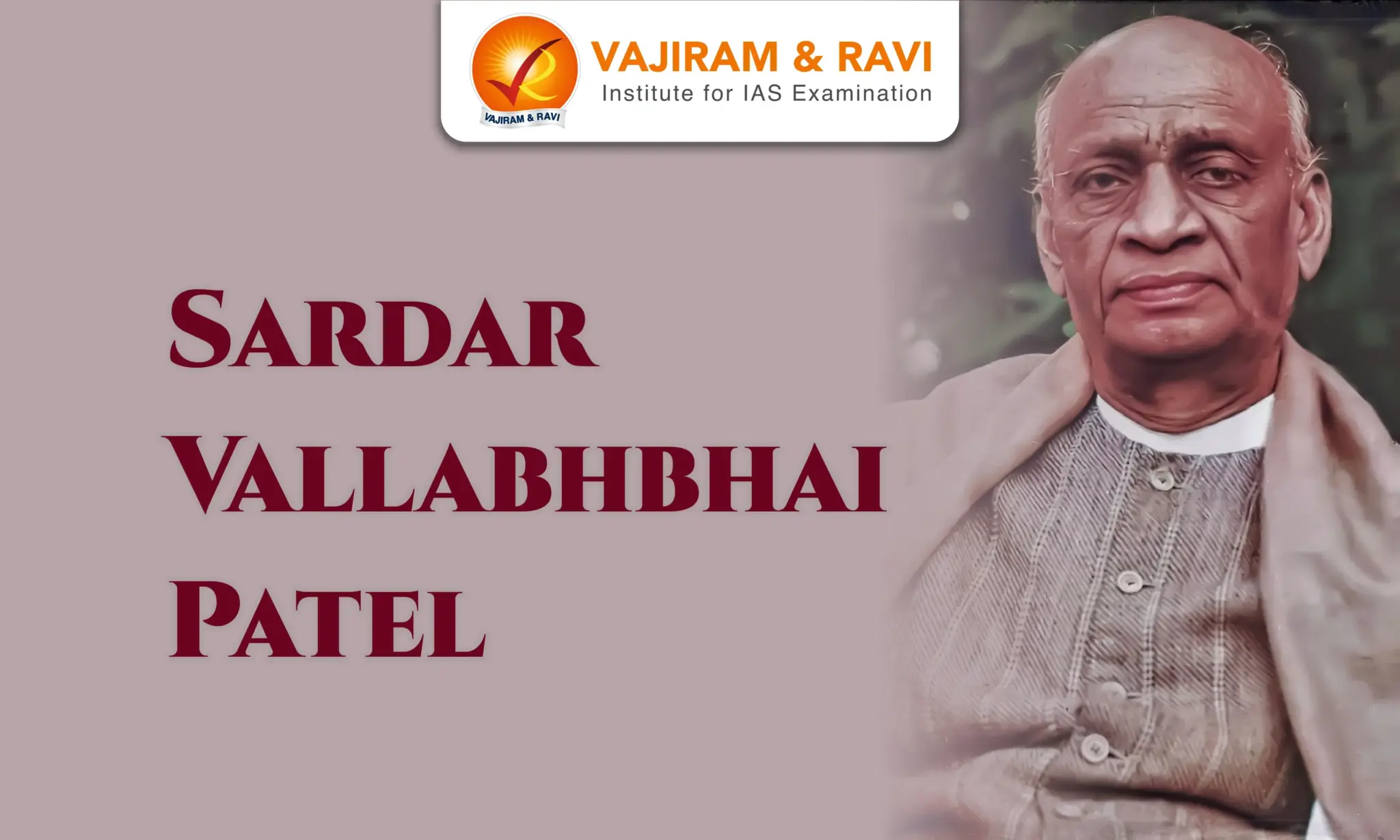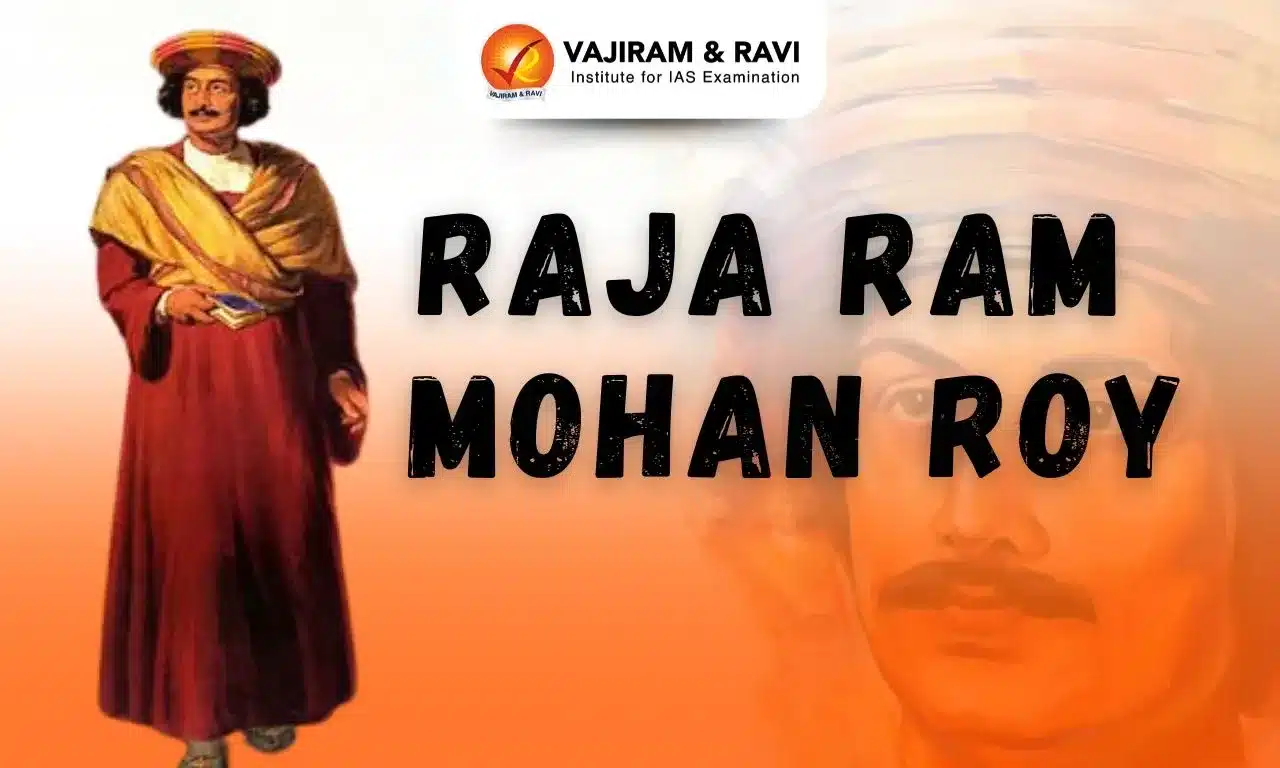Sardar Vallabhbhai Patel was a prominent leader in the Indian Independence Movement, known for his unwavering commitment to national unity and strong leadership. A trained lawyer, he gained fame as a key figure in the Indian National Congress, advocating for civil rights and farmers’ interests. His strategic acumen earned him the title “Iron Man of India,” particularly for his efforts in integrating over 500 princely states into the Indian Union post-independence.
Sardar Patel, as the first Deputy Prime Minister and Minister of Home Affairs, played a crucial role in shaping modern India. His legacy continues to inspire generations as a symbol of integrity, determination, and the pursuit of a unified nation.
Sardar Vallabhbhai Patel
Sardar Vallabhbhai Patel was born on October 31, 1875, in Nadiad, Gujarat, to Jhaverbhai Patel and Ladba Patel. Raised in the countryside, Patel followed the Vaishnavism tradition and took Diksha from the Pushtimarg sect. After working hard and saving funds, he travelled to England at the age of 36, where he completed a law course at the Middle Temple. Upon returning, Patel became a successful barrister in Ahmedabad and began his career in public service.
Sardar Vallabhbhai Patel’s Early Political Career
Sardar Vallabhbhai Patel, greatly inspired by Mahatma Gandhi’s leadership, took on his first political role in 1917 as Sanitation Commissioner of Ahmedabad. Between 1924 and 1928, as Chairman of the Ahmedabad Municipal Committee, Patel introduced key reforms in urban planning, sanitation, and water supply, making the municipality a people-driven institution.
- Patel became the Secretary of the Gujarat Sabha in 1917, assisting Gandhi’s political campaigns.
- He was appointed as the President of the Indian National Congress in 1931, Karachi session, where Congress passed a resolution on Fundamental Rights and the National Economic Program, and ratified the Gandhi-Irwin Pact.
Sardar Vallabhbhai Patel’s Role in Indian National Movement
Sardar Vallabhbhai Patel played a pivotal role in India’s freedom struggle, actively participating in key movements led by Mahatma Gandhi. He demonstrated his leadership by fighting for the rights of farmers and the common people, making significant contributions to various agitations against British rule.
- Kheda Satyagraha (1918): Patel actively participated in the Kheda Satyagraha to secure exemption from land revenue payments due to crop failure. After three months of intense campaigning, including arrests and seizures, the Colonial Government finally granted relief.
- Non-Cooperation Movement (1920): Patel fully committed to the Non-Cooperation Movement, leaving his law practice to engage in political work. He toured villages, organized protests against British goods, and promoted the boycott of foreign products.
- Bardoli Satyagraha (1928): Patel led this campaign in response to an unfair increase in land revenue. The struggle was marked by police brutality and property seizures, but Patel’s leadership eventually led to a successful outcome, earning him the title “Sardar.“
- Quit India Movement (1942): During the Quit India Movement, Patel supported the resolution passed by the All India Congress Committee. He was arrested along with other Congress leaders and detained in Ahmednagar Fort for his participation.
Sardar Vallabhbhai Patel’s Contributions to Post-Independence India
When India gained independence, Sardar Vallabhbhai Patel took on the role of Deputy Prime Minister, overseeing critical ministries such as Home Affairs, States, and Information and Broadcasting. His leadership was pivotal in addressing the numerous challenges facing the nascent nation, particularly in the realm of political integration and administrative governance.
- Political Integration of Independent India: Patel spearheaded the integration of over 560 princely states into the Indian Union. His pragmatic approach, combined with tact and diplomacy, led to the peaceful accession of most princely states, with significant exceptions like Hyderabad and Junagadh resolved through decisive action. Patel’s efforts in preventing the Balkanization of India earned him the title “Iron Man of India“.
- Father of All India Services: Sardar Patel also laid the foundation for All India Services, envisioning them as the “Steel Frame” and a unifying force for the newly independent country.
- Patel’s vision of a disciplined and impartial civil service remains integral to India’s administrative framework today, further cementing his title as the “Father of All India Services.”
Sardar Vallabhbhai Patel’s Death and Legacy
Sardar Vallabhbhai Patel passed away on December 15, 1950. His legacy endures through his contributions to nation-building and his vision of a unified India. The Statue of Unity, unveiled in 2018, stands as a tribute to his efforts and ideals. Patel is remembered as a leader who prioritized national integrity and unity above all.
Last updated on June, 2025
→ UPSC Notification 2025 was released on 22nd January 2025.
→ UPSC Prelims Result 2025 will be out soon for the CSE held on 25 May 2025.
→ UPSC Prelims Question Paper 2025 and Unofficial Prelims Answer Key 2025 are available now.
→ UPSC Calendar 2026 is released on 15th May, 2025.
→ The UPSC Vacancy 2025 were released 1129, out of which 979 were for UPSC CSE and remaining 150 are for UPSC IFoS.
→ UPSC Mains 2025 will be conducted on 22nd August 2025.
→ UPSC Prelims 2026 will be conducted on 24th May, 2026 & UPSC Mains 2026 will be conducted on 21st August 2026.
→ The UPSC Selection Process is of 3 stages-Prelims, Mains and Interview.
→ UPSC Result 2024 is released with latest UPSC Marksheet 2024. Check Now!
→ UPSC Toppers List 2024 is released now. Shakti Dubey is UPSC AIR 1 2024 Topper.
→ Also check Best IAS Coaching in Delhi
Sardar Vallabhbhai Patel FAQs
Q1. What is Sardar Patel famous for?+
Q2. Why is Sardar Patel called Iron Man?+
Q3. What was the contribution of Sardar Vallabhbhai Patel to the Indian freedom struggle?+
Q4. Who gave the Sardar title to Patel?+
Q5. How Sardar Patel United India?+


















